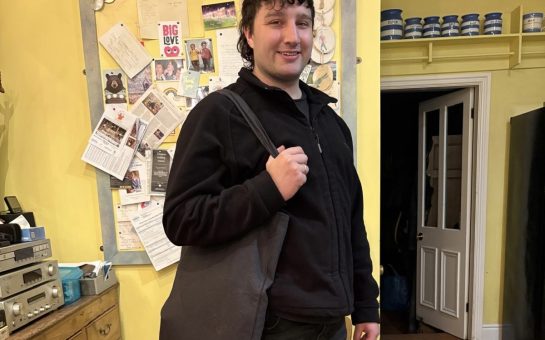The number of adults with a serious mental illness accessing NHS mental health services has reached a new high, according to data from NHS England.
There were 500,000 people accessing these services at the end of 2021, and the number has now risen to over 650,000 as of February 2025.
The rise has been continuous since October 2022, with an increase of 40,000 people between March and April 2023 after the NHS added Early Intervention Psychosis and Individual Placement Support teams onto its service list.
Since then, over 5000 additional adults monthly have accessed mental health services, which the NHS defines as having received two or more contacts over the previous 12 months.
Diagnosis difficulties
One of those adults is Abby, 23, who sought help last year after receiving a diagnosis of depression and anxiety in her childhood.
Abby said: “When I was really young, I was diagnosed. But when I returned to get support as an adult, they had no record of that diagnosis.
“I think doctors are willing to hand out these diagnoses but they don’t put in the follow-up effort to look into things properly.”
Abby was given an occupational therapist who wasn’t of much help, and then upon her return to the GP, she was offered medication and the promise of a follow-up appointment.
But after not receiving a phone call despite being assured of one, Abby said “their main advice was just to get out and think positively”.
Abby’s mother was diagnosed with Borderline Personality Disorder (BPD), which encouraged the 23-year-old to look into whether she also had it after learning it could be passed down hereditarily.
Abby said: “I wasn’t supported in my search for a diagnosis. I think depression and anxiety are diagnoses that doctors are willing to hand out easily, but anything else is more of a struggle.
“I was reading lately that 8-10% of people who have BPD will die through suicide. Because there’s no help and they just have to deal with it.
“I can’t stop thinking about that number.”
Yvette White, an Essex-based counsellor who runs her own private practice and also sees clients through BUPA, discussed how correspondence with NHS services affects her patients in therapy.
White said: “We sometimes try to write to GPs and can get quite let down when trying to direct clients to the right places.”
The counsellor recalled a patient who required additional support, which prompted White to write to a doctor so her client could access a specialised therapy.
Despite the cost of this being exceedingly high through private healthcare, White said that the doctor’s response boiled down to this – “What do you want me to do about it?”
The counsellor said: “I was let down so badly with my mental health when I was young. All of my trauma is what’s led me here to help others.”
White believes there must be a more accessible way for people to get private medical insurance, as people going elsewhere could take the load off of NHS services that may struggle to cope with this rise.
The counsellor said: “If this doesn’t happen, it’s going to hit us somewhere else in our country.”
The economy and COVID-19
London faced the highest percentage increase of adults with a serious mental illness accessing mental health services between April 2023 and February 2025, with a rise of 37.2%.
The South West followed with an increase of 34.5%, then the North West with a rise of 29.8%.
Mancunian Matters also spoke to Seth Gillman, a qualified counsellor who runs a private practice in London, to discuss the causes and implications of this rise and its economic link.
Gillman said: “A lot of it is to do with the way society is at the moment – there’s deprivation, poverty and inequality. People who are suffering are looking for help.”
The counsellor believes that the NHS services are under significant pressure and are under-resourced, and said that people “have to be in a really serious crisis to be able to access support”.
Despite the statistics showing that more people are coming forward, Gillman believes that they still do not accurately convey how many people nationwide there are in need of help.
The counsellor said: “There’s more people coming forward but less support. And when funding to these services is cut, society pays more.
“They have to deal with these issues when they’re more entrenched later on in life. It’s a false economy. It’s more expensive in the long run.”
Gillman, who also works part-time as a young person counsellor, discussed the impact of COVID-19 on the rise.
He said: “A lot of those kids really suffered and are years behind where they should be. Their development has been psychologically and socially impaired.
“Those kids, now adults, may never catch up, and I think that’s going to feed its way through the system as the years go by.
“The resources weren’t put into place to make up for kids not being in school for so long. We have a lost generation.”
And Gillman believes the rise will continue, despite his apprehension that more resources will go into the services.
The counsellor said: “It takes a long time, particularly in a system that’s been so underfunded in the last few years.
“And COVID will continue to have a big impact as the years go by.”
Greater Manchester and NHS staff concerns
Greater Manchester has seen an increase of over 4000 adults in the last year, whilst Cheshire and Merseyside has seen a rise of just over 2500.
On the other hand, Lancashire and South Cumbria has seen a decrease of over 200 patients in the last year.
Mancunian Matters spoke with Catherine Horton, a Manchester-based counsellor who worked within the NHS before starting her own private practice, to discuss this increase in adults with a serious mental illness seeking care in Manchester.
The counsellor, who wrote a Master’s paper last year on staff burnout and counsellors practicing self-compassion, expressed fear for the wellbeing of the NHS staff dealing with such an increase after a period of more manageable numbers.
Horton said: “There’s so many caseloads to handle, and traumatic stories coming through, that my concern is how those staff are looked after and supported to sustain those numbers.
“Empathetic fatigue, vicarious trauma – these are all things that need to be considered when services manage their staff.”
The therapist affirmed that she was not unhappy working with the NHS and believes that what the services offer is “pretty amazing in challenging times.”
Horton said: “The NHS, and charities, do such wonderful work and it’s been a privilege to work in those systems.”




